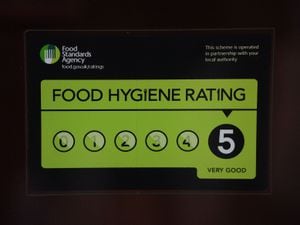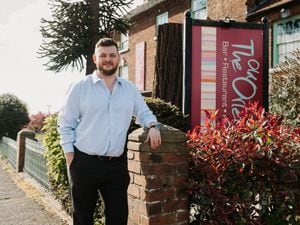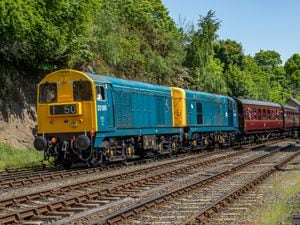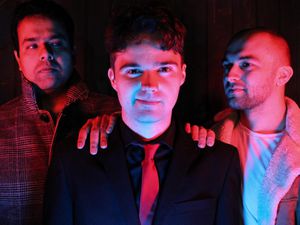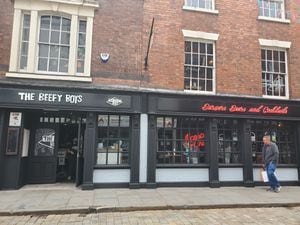Catching Pablo Escobar: Meet the real Narcos DEA agents
"The violence you saw in the show was pretty rough, but as bad as that was in real life it was a lot worse than that."
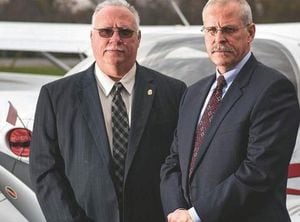
It is one of Netflix most successful series, charting the feds' battle to bring down the murderous Colombian cartels that dominated the world's drug trade for decades.
As far as edge-of-the-seat television is concerned, Golden Globe nominated Narcos has got it all.
The first two seasons of the hit show chronicle the work of DEA agents Javier Peña and Steve Murphy in bringing down narco-terrorist Pablo Escobar, the monster who presided over the Medellín Cartel’s billion dollar cocaine industry.
But it very nearly never got made at all.
"Our major concern was that anyone would try and glorify this guy," said Steve, speaking from his home in Washington DC.
“It was the last thing we wanted, because he was nothing more than a mass murderer. This is an extremely evil person who killed thousands of people indiscriminately. We just wanted the truth to be told."
WATCH Narcos trailer:
Escobar's reign of terror saw him responsible for up to 15,000 deaths as he built up the world's largest drug empire, at one point supplying an estimated 80 per cent of all the cocaine smuggled into the US.
Steve and Javier had long wanted to get their story out there, but turned down a number of opportunities to do so over concerns that Escobar would be put on a pedestal.
Then in 2013 they got a call from a retired US Marine they had not seen for 30 years who put them in touch with executive producer Eric Newman.
“We turned him down at first, but he came out to Washington and our personalities clicked," said Javier, speaking on a connecting line from Texas.
"We told the writers the whole story from start to finish. Obviously there is artistic licence in the show and we had no control over that, but the chronology is right and I think overall they did a good job."
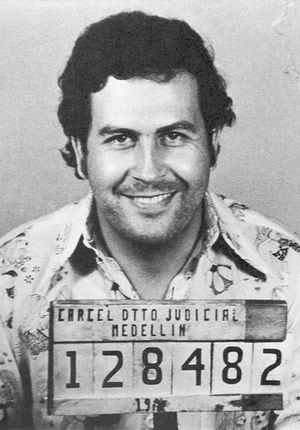
Newman has gone on to be the series' showrunner, with Steve and Javier working as consultants.
The duo are about to embark on a UK tour in May, in which they promise to give a no holds barred account of their at times terrifying mission to take down the man known as El Patron, as well as the follow up mission to dismantle the Cali Cartel (chronicled in season 3 of Narcos).
'Crazy' violence
The first thing that usually hits new viewers of Narcos is the sickening levels of violence, but according to Steve it wasn’t anywhere near as bad as the real thing.
"The violence you saw in the show was pretty rough, but as bad as that was in real life it was a lot worse than that,” he recalls.
"If they had depicted what really went on it probably would have been too violent for people to watch. It was pretty crazy."
Javier volunteered to go to Mexico but was sent to Colombia in 1988. Steve joined him three years later having being stationed in Miami for four years.
Javier said: "I was in a small office in Austin, Texas and I wanted to get near to the real traffickers to see how it all worked."
"In the DEA our goal was to work the bigger cases and go after the big boys directly. Colombia was the next step up for both of us," adds Steve.
Undercover
They had never met before when they became partners, but hit it off instantly.
The pair worked with a specialist undercover group from the Columbian national police, who protected them day to day, but they never knew when the sicarios – hitmen who were paid to kill – would attempt to strike.
In a country where murders were occurring by the dozen on a daily basis, Steve admits that learning to control their fear was vital.
"If we said we were not scared at all we would be lying,” he said. “Javier and I, we don't pretend to be tough guys.
“The reality is we are a couple of small town country boys who got to work the big case.
"There were times we were scared, not everyday but close to everyday.
“We were out with the Colombian national police on operations, flying around in helicopters and going on raids and patrols in the mountains, in undercover cars and the rest of it.
“It was a scary time but we learned to control our fear so we could still function.
“If you let fear overtake your senses the automatic reaction is to run away. You can't do that, that's when you get hurt."
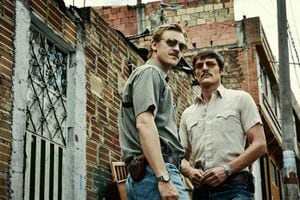
Escobar was shot to death by Colombian police in December 1993, prompting widespread celebration across Colombia.
It marked a major change from Javier's early years in the country, when such was the fear invoked by Escobar that the police had very few informants, with people more likely to help the drug lords than work against them.
"The public would protect Escobar. They would hide him and tell him and his people if we were coming," he said.
In come Cali
It was after his escape from the luxurious La Catedral prison in July 1992 that things changed.
By this stage Escobar's air of invincibility had disappeared and according to Javier, more people came forward with information as a result.
But despite their satisfaction at bringing him down, Steve and Javier are under no illusions as to the impact Escobar's demise had on the war on drugs.
"Someone always comes in to take their place," says Steve.
"Looking back on it now, did we have a real effect on the cocaine trafficking in the world by taking out Pablo Escobar?
"Yeah, we probably did. But that probably only lasted for a couple of weeks. The Cali Cartel stepped up next, we took them out.
“Then you had the North Valley Cartel, and a guy named Don Berna [a paramilitary commander and drug trafficker]...it just keeps going and going.
"To this day you can buy cocaine on just about any street corner you want to all around the world.
"You can't let it get to you. As a DEA agent you hit your target and then you go onto the next case."
Narcos: Capturing Pablo and the Cali cartel comes to Birmingham O2 Academy on May 12.

